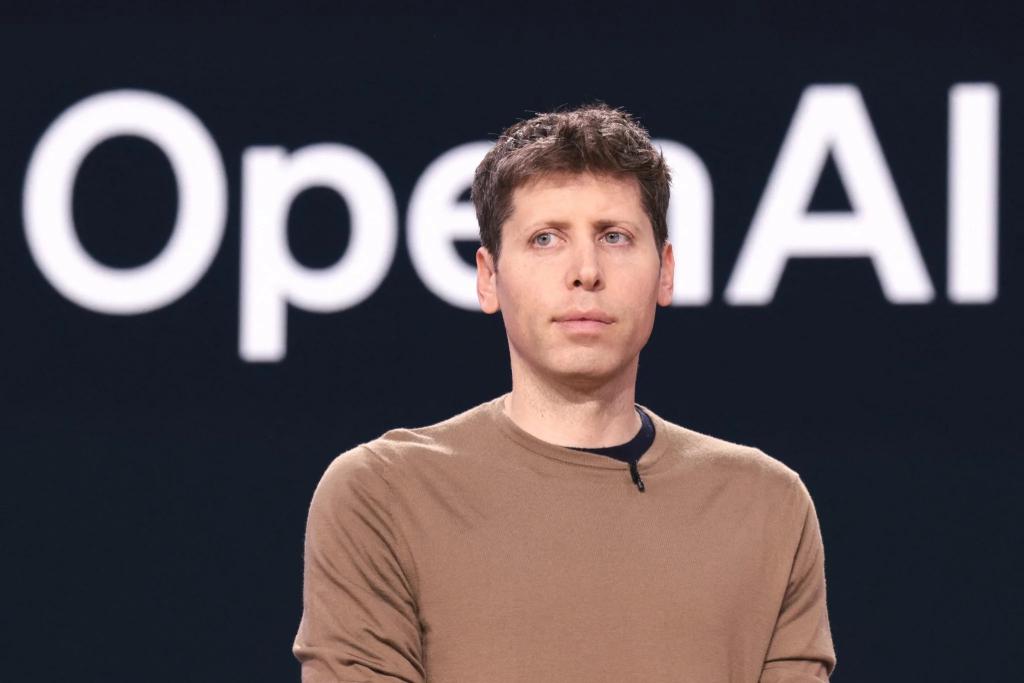OpenAI is in the process of transitioning from a nonprofit business to a for-profit one—and Sam Altman, the company’s CEO and one of its eight original founders, might end up getting a huge payday as a result.
OpenAI could grant Altman a 7% equity stake in the company, which could potentially lead to a $10 billion infusion of wealth for the 39-year-old CEO. Altman’s net worth is currently somewhere in the ballpark between $1 and $2 billion, based on the latest calculations by Forbes which do not factor in his work with OpenAI.
“The board has had discussions about whether it would be beneficial to the company and our mission to have Sam be compensated with equity, but no specific figures have been discussed nor have any decisions been made,” Bret Taylor, chairman of OpenAI, said in a statement to Fortune.
One person who has not taken kindly to Altman’s bid to transition the corporate structure of the company behind ChatGPT is one of OpenAI’s original founders, Elon Musk. In a series of X posts this week, the 53-year-old Tesla CEO and world’s richest man called Altman “Little Finger,” a reference to the skilled manipulator who plotted against political rivals in HBO’s hit show Game of Thrones, and also criticized OpenAI’s current direction, saying, “You can’t just convert a nonprofit into a for-profit. That is illegal.”
Much of Altman’s current wealth stems from his extensive investment portfolio: He has holdings in over 400 companies valued at over $2.8 billion, according to Business Insider. He also owns about $90 million worth of real estate, made north of $43 million from selling the location-based social network Loopt back in 2012, and made money—and inroads among Silicon Valley’s elite—during his time as Y Combinator president between 2014 and 2019.
But while Altman may be enjoying the rocket ship that is OpenAI, his startup’s transition to a for-profit B corporation has led to significant turnover as senior executives continue heading for the exit. Just this week, three crucial executives—chief technology officer Mira Murati, chief research officer Bob McGrew, and research VP Barret Zoph—all decided to leave the company. Earlier this year, OpenAI also lost two of its cofounders, former president Greg Brockman and former chief scientist Ilya Sutskever.
Speaking Thursday in Turin, Italy, Altman insisted the executive departures were completely unrelated to the company’s restructuring plans.
“I saw some stuff that this was related to a restructure, that’s totally not true,” Altman said. “This is just about people being ready for new chapters in their lives.”
OpenAI is currently looking to raise $6.5 billion at an eye-watering valuation of $150 billion, which would vault its market cap over companies like Ford, Target, and American Express. Recently, the company’s efforts have been focused on exciting investors while allaying concerns about the future of artificial intelligence. The company on Thursday unveiled a new AI model, internally called Strawberry, that can perform human-like reasoning tasks to carry out multi-step actions, which is particularly helpful for math and coding. It also recently unveiled a new logo redesign to employees, although staffers were reportedly taken aback by the design, saying it looked ominous, sources told Fortune’s Kali Hays.
Altman, meanwhile, has led the company’s outward-facing efforts to get the general public feeling more comfortable about AI. The 39-year-old CEO was recently interviewed by Oprah Winfrey for an ABC prime-time special; she pressed him about AI’s potential dangers and the public trust, asking how Altman felt about being described as “the most powerful and perhaps most dangerous man on the planet.” Altman told Winfrey he probably has “a conversation with someone in the government every few days,” assuring her he is in constant communication with officials and world leaders given AI’s growing importance in global politics and economics.



